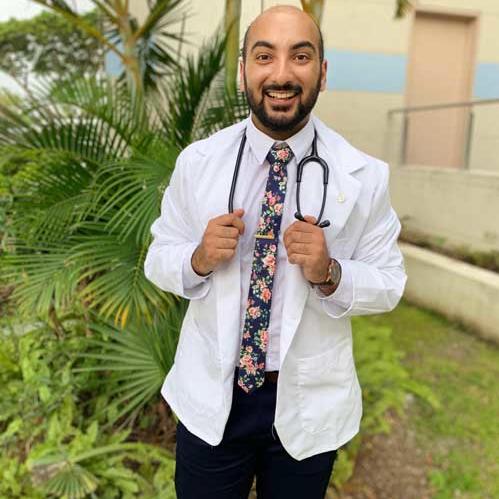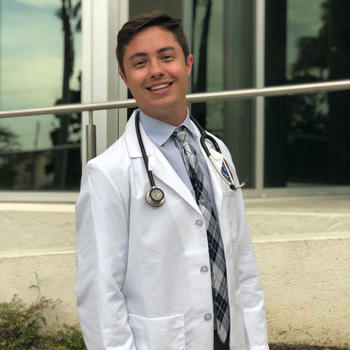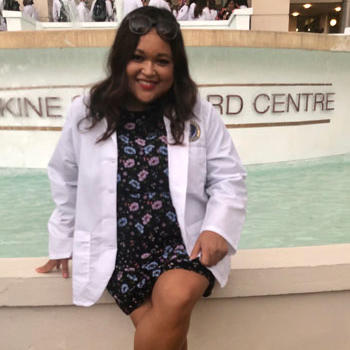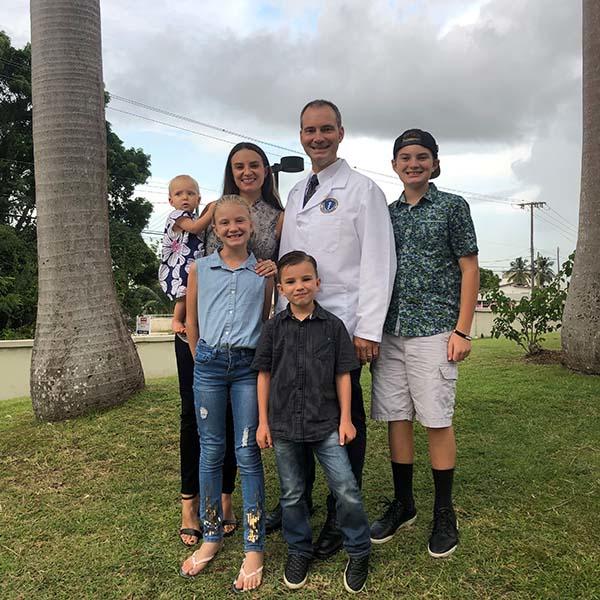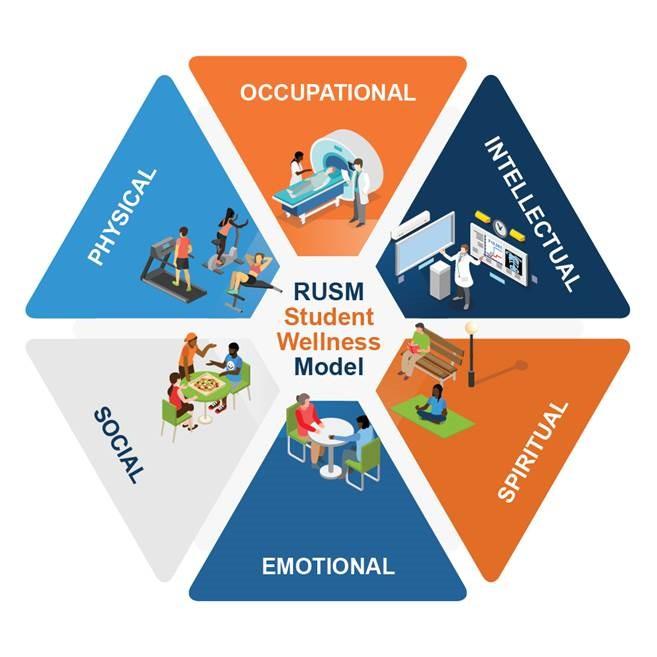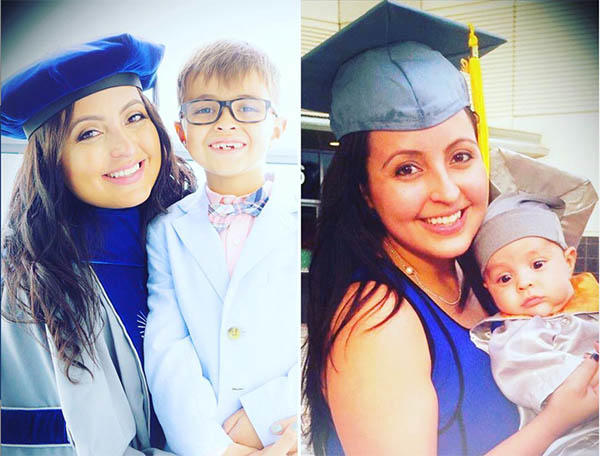As future healers of those suffering from physical, mental and emotional turmoil, it has never been more imperative for medical students to practice mindfulness and incorporate wellness into their daily routine. The medical brag sheet of pulling double shifts, fibbing about the maximum hours worked and putting themselves last on the get-well sheet has proven ineffective. It’s time to implement the basics of self-care, something students can learn through the Mind-Body Medicine (MBM) program at Ross University School of Medicine (RUSM).
“We not only need to train our students to perform well as physicians. We need them to be well,” said Laurie Helgoe, PhD, associate professor of behavioral sciences and MBM facilitator-advisor who promotes mental health and wellbeing. “Residents and physicians are busy dedicating their lives to the care of others. This program can help future physicians become more resilient to stress and burnout while increasing their ability to respond to the emotional needs in themselves as well as their patients.”
The MBM student pilot program began in February, consisting of eight weekly, two-hour group sessions. The last two sessions as well as the current session have been held virtually because of the pandemic. Participants practice mindful self-awareness, sharing and listening without intervening, and a varied menu of mind-body skills — tools applicable for their academic journey as well as in life.
Ambassadors Carry the Torch
“We shared trauma we’d experienced in the past and fear about the future,” said fourth-semester student Eshan Nanda who elaborated on the struggles of first semester. He was one of 10 second-semester students enrolled in the program, and one of nine who volunteered to serve as Mind-Body ambassadors. “Learning these techniques helped me revamp my whole medical school experience; I even got a tattoo to represent how it changed my life.”
The program also strengthened the relationship with his roommate, fellow ambassador and fourth-semester student Matthew Kranitz, who said his grades improved. “I figured out how to prioritize myself and my mental health.” Agreeing with her ambassador peers is fourth-semester student Nikki Carrido. “We really needed to pause and breathe because going into residency doesn’t get any easier.”
In May, Eshan, Matthew, Nikki and other ambassadors led small-group MBM sessions with interested students and are now partnering with RUSM organizations and departments to spread the word. “You don’t realize how much your mind is calling out for help,” Eshan said. “I now have more tools to combat anxiety. I have faith in myself and a new perspective on med school.”
RUSM staff members also experienced the program’s value by joining one of four mini-sessions led by Dr. Helgoe and MBM-trained faculty. While the virtual setting hasn’t been ideal, participants are embracing the program by shutting off phones, closing windows and not multi-tasking. And it comes with a new level of intimacy because members can share elements of their personal lives through video sessions.
RUSM leaders recognized the relevance of MBM a few years ago when Hurricane Maria traumatized the campus community in Dominica and prompted a series of stressful transitions. It became apparent, through RUSM’s connection with the Center for Mind-Body Medicine, that more intensive wellness education needed to become a staple. “Medical professionals are so used to fixing people and not worrying about themselves, which is central to what degrades mental health,” Dr. Helgoe explained. “This isn’t about giving advice. It’s about being present and people bearing witness to your experiences. There’s a freedom — an outlet that occurs — when you can bring your private experience into a safe-group format. This shatters that isolation for professionals and for medical students who have demanding schedules.”
MBM university advocates will continue to monitor program progress through student/faculty evaluations and formal research to determine how to best serve a wider audience as the program expands.
“We need to change the culture in medicine of chronic stress that leads to burnout,” Nikki said. “This program addresses this unhealthy lifestyle we find ourselves in — the all-nighters, running through lectures and going 12 hours straight. Students and physicians need to understand — You Matter. Your Mind Matters. Your Mental Health Matters.”
Learn More
For more information, please visit the RUSM ambassador social media site or send an email to the MBM team. You can also contact the RUSM Wellness and Counseling Center by emailing Rusmwellnessandcounseling@rossu.edu.
Road to Residency Library
If you have a topic you’d like to learn more about, please share your feedback with us.

